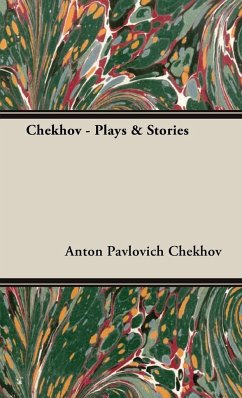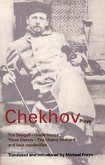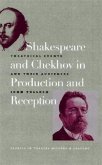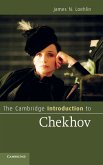Chekhov's fame grows steadily with the years, and now for the first time his best work is made available in a single low priced volume. The translation is by S.S. Koteliansky, whose English versions of The Cherry Orchard and The Seagull appear here for the first time. The Wood Demon, the earlier version of Uncle Vanya, is the third of the full length plays in the book. A few shorter playlets are also included, and Tchekhov's mastery of the art of the short story is shown by a selection of thirteen of his best stories, including My Life, and The Lady with the Toy Dog.
Hinweis: Dieser Artikel kann nur an eine deutsche Lieferadresse ausgeliefert werden.
Hinweis: Dieser Artikel kann nur an eine deutsche Lieferadresse ausgeliefert werden.








